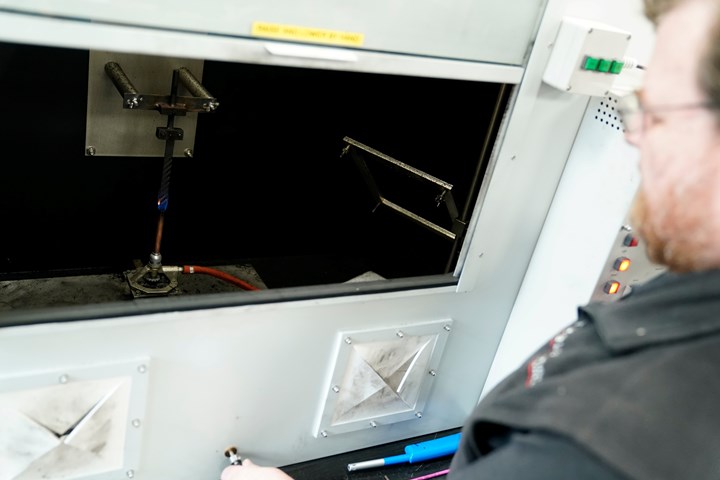TRB Lightweight Structures partners with University of Bristol to broaden PFA offerings
Knowledge Transfer Partnership project aims to develop novel and improved PFA resin formulations for composite applications.
TRB Lightweight Structures (TRB, Huntingdon, U.K.), provider of lightweight, energy-efficient solutions for transport applications, has entered into a Knowledge Transfer Partnership (KTP) focusing on resin chemistry development with the University of Bristol (U.K.). The 24-month project, commencing in December 2022, will specifically target poly(furfuryl alcohol) (PFA) resin systems, aiming to develop improved formulations for composite applications.
Environmentally aware manufacturers, including TRB, are moving towards “greener” materials — such as PFA produced from biomass waste — whenever possible. PFA is said to offer excellent fire, smoke and toxicity (FST) behavior, and can operate effectively at elevated temperatures, making it broadly comparable to the more commonly used petrochemical-based phenolic resins.
The KTP will build on TRB’s expertise in the use of PFA in composite components, and the University of Bristol’s strong resin chemistry development knowledge — through the involvement of Professor Ian Hamerton and Dr. Ram Ramakrishnan — to develop the next generation of PFA resin systems. Jointly funded by TRB and Innovate UK, the U.K.’s innovation agency, the project will be led by KTP associate Dr. Usman Sikander, a materials engineer specializing in composite materials and manufacturing, who will work predominantly at TRB. His initial focus will be on resin-based formulation trials, before progressing to composite prepreg manufacturing in-house at TRB, as well as laminate production and testing.
“Sustainability is one of the key drivers for innovation in the next generation of composite materials,” Dr. Sikander notes. “PFA resins have a promising future and offer solutions that are in line with reaching the net-zero goal in the long run. I look forward to working with TRB and the University of Bristol to expand the market share of these products.”
According to Francis Arthur, engineering manager at TRB, applications with stringent FST requirements, such as underground rail, aerospace and electric vehicles (EVs), are set to benefit from this broader PFA offering.
KTPs have been successfully supporting company and academic partnerships for more than 47 years across a range of industries and sectors throughout the U.K. In recent years, there have been between 700-900 such partnerships, with around 200 projects ending and a similar number replacing them. From next year onwards, explains Jody Chatterjee, knowledge transfer adviser, Innovate UK KTN, “we are expecting that the KTP program will support nearly 1,000 such partnerships. Around 94% of these partnerships achieve or overachieve their objectives, and 65 % of the associates, who act as the conduits of knowledge transfer from the academic teams to the companies, remain with their host companies. I am truly excited to have the partnership between TRB Lightweight Structures and the University of Bristol join our KTP family.”
Related Content
-
Toray, University of Chicago speed up polymer recycling R&D
A jointly developed multi-scale computational predictive technique can accurately predict viscoelasticity from the chemical structures of polymers, ramping up product maturation.
-
ASCEND program update: Designing next-gen, high-rate auto and aerospace composites
GKN Aerospace, McLaren Automotive and U.K.-based partners share goals and progress aiming at high-rate, Industry 4.0-enabled, sustainable materials and processes.
-
The Native Lab launches composites course training membership plan
Courses that touch on the fundamentals of composite materials, design, analysis and more are available for individuals and companies alike through TNL’s online platform.

















